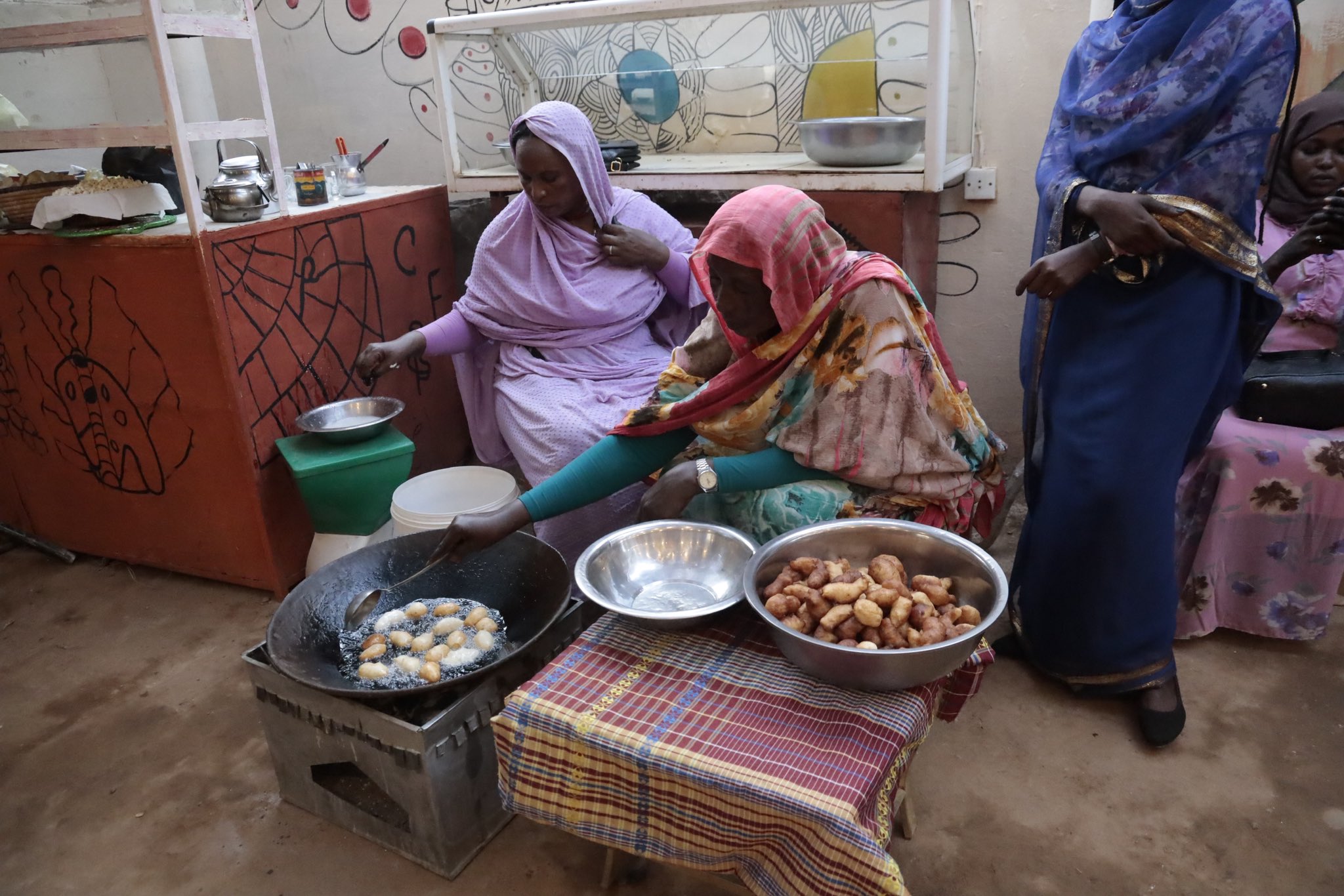No one’s paying attention: The crisis in Sudan

“It’s been devastating, even if no one’s paying attention.”
This sentence from a TomDispatch column about Sudan deeply resonated with me as I wrote the most recent update to the Center for Disaster Philanthropy’s Sudan Humanitarian Crisis disaster profile.
There is a sharp contrast between the international community’s attentiveness and response to the humanitarian crisis that exists for the Sudanese people after the recent conflict and the war in Ukraine that began in February 2022. We saw immediate attention in Ukraine, and money quickly flooded in. Media outlets had round-the-clock coverage and stories about the Russian invasion. By the 100-day point in the Ukraine crisis – a marker that Sudan passed on July 25 – grants had topped $1.2 billion, and pledges added nearly $700,000 more, according to tracking from Candid. Tracking disaster philanthropy is usually done when Candid notices significant pledges and grants: they did not see this in Sudan.
This lack of attention is something we have struggled with at CDP. How do we increase funders' awareness of a disaster that doesn’t seem to interest anyone? Share on X
There has been a lack of interest in the crisis from the media, funders, governments and most of the U.S. populace. Sudan is not a hot topic in mainstream media. There is little sharing of information or ads about the crisis on social media. CDP’s fundraising efforts for Sudan have had limited success except for a generous grant from the Truist Foundation.
As you can see from the table below, there is a significant difference between government contributions to Ukraine and Sudan, both overall and from the U.S. government. The United Nations Humanitarian Appeal for Sudan has received just $665.6 million as of Aug. 23, 2023. By comparison, Ukraine’s flash appeal in 2022 received $3.73 billion from March 1, 2022 to Dec. 31, 2022.
| Amount needed | Amount funded | Percent of target funded | U.S. contribution | U.S. funding as share of total raised | |
|---|---|---|---|---|---|
| Sudan (2023) | $2.57 billion | $665.6 million | 26% | $389.8 million | 59% |
| Ukraine (2022) | $4.29 billion | $3.73 billion | 86.8% | $1.27 billion* | 34% |
*In 2023, the U.S. has contributed nearly $1 billion in additional funding to Ukraine.
So, what’s the difference? Is it location – Europe versus Africa? While I am Canadian, my familial roots are European, as they are for many white Americans. And while my first fundraising experience was connected to the famine in Ethiopia in the early 1980s, my awareness of political events and crises was much more centered in the so-called Global North until I began to work at CDP.
Or is it that Russia is involved in Ukraine, and the U.S. has a long history of fighting communism (not to mention the threat of nuclear weapons)? Russia is seen as a threat to U.S. interests and lives in a way that Sudan is not. The Sudan crisis may feel very internal, but Russia’s role in that country cannot be ignored.
Is it a racial issue: a black population versus a white one? Do white Americans, who hold the balance of wealth and political power, see reflections of themselves in Ukrainians but not in the Sudanese people? Do they feel closer to the people as they flee to other countries, including the U.S.?
Or maybe it’s what Edward Herman and Noam Chomsky call “worthy and unworthy victims” in their book, Manufacturing Consent. In their passionate plea for assistance that sparked the idea for this blog post, Priti Gulati Cox and Stan Cox wrote, “Europeans now being killed, wounded, or rendered homeless by Russian troops are victims worthy of media attention, while Sudanese facing similar fates aren’t.”
The difference matters – more media attention means more funding – but it shouldn’t. The crisis in Sudan is horrific. And no one is paying attention. Share on X
If I still have your attention, let me provide a quick synopsis. Since the conflict in Sudan broke out on April 15, there has been massive internal and external displacement and thousands of civilian deaths. Sexual violence is increasing, children are out of school (and being recruited by both militaries), and there are both health and hunger crises. One in two people are now dependent upon aid for survival. Those who have not left the country suffer in fear and live with power outages and an acute lack of safety, water and food.
- More than 80% of health care services are closed in areas where the most fighting occurs.
- UNICEF reports that more than 13.6 million (1 in 2) children urgently need humanitarian aid. Over 3.6 million children are displaced.
- 20.3 million people (42% of the population) face acute food insecurity.
- Sudan is considered one of the world’s most vulnerable countries to climate variability and climate change. Last year’s monsoon season was devastating, and the rainy season is here now.
- According to Amnesty International, there have been “extensive war crimes including mass killings of civilians, rape and sexual slavery of women in the ongoing conflict.”
- Since April 15, at least 3.02 million people have been displaced internally within Sudan, and 1 million more have moved back and forth across borders with neighboring countries.
- According to the Sudanese Health Ministry, there were 1,136 people killed as of July 7. However, numbers collected by activists in Khartoum show a much higher death toll.
As an experiment, I asked Bing AI and Google AI why we should help the people of Sudan. They both listed numerous statistics and information about the crisis. What they didn’t do (and can’t … yet…) was list the emotional, social or political reasons that should influence us to act.
This is a tremendous crisis. It needs all of us to pay attention and do something to help. People are dying. Women are being sexually assaulted. Children are starving. The same issues exist in Ukraine and other crises around the world. We all need to step up to help solve these problems.
We can’t choose one crisis or war over the others. After the genocide in Darfur, the world said “never again,” but again is happening now. We must speak up and encourage government leaders to call for ceasefires and peace talks. We need to support organizations, particularly those that are local or with a long presence in the country, that are providing critical essentials. Countries receiving refugees also need assistance to deal with the influx.
If you want to help, CDP’s Global Recovery Fund is accepting donations for Sudan. You can also contact our development team for assistance. We can provide recommendations and advice about which nonprofits are responding to Sudan.
